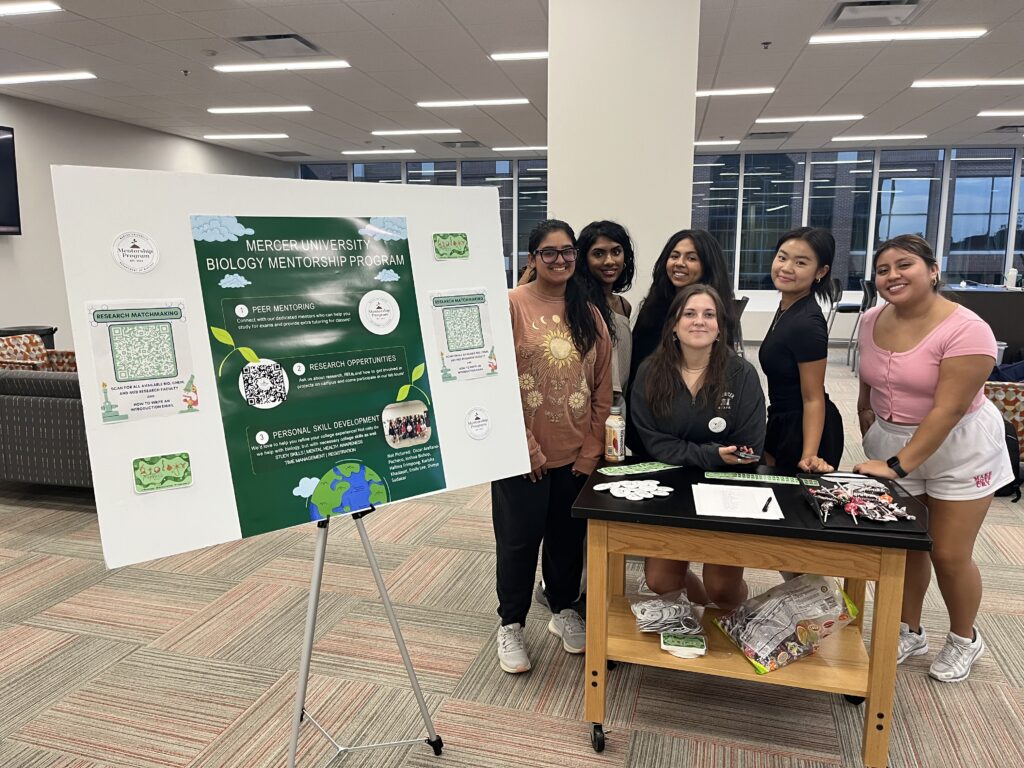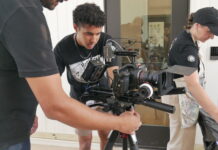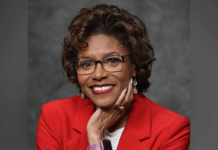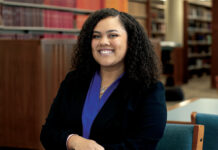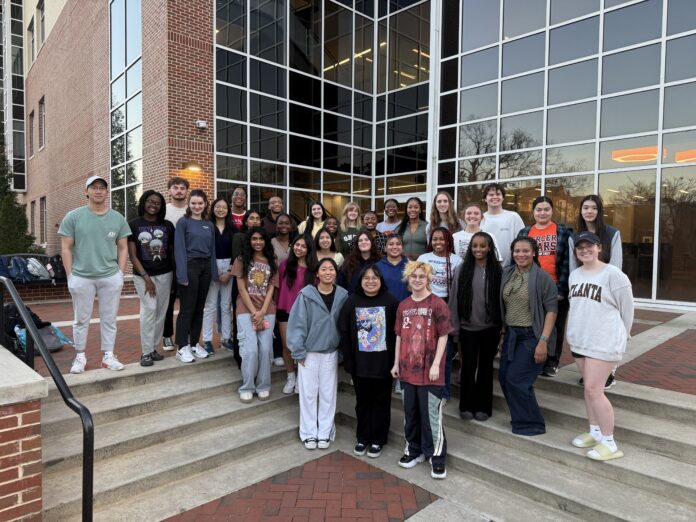
Dr. Shonteria Johnson loves connecting with her students and helping them achieve those “aha!” moments. Earlier this year, the Mercer University senior biology lecturer was recognized with the Mary Ann Drake Award for Mentoring and Advocacy from the College of Liberal Arts and Sciences for her work supporting students through the Biology Mentorship Program.
Dr. Johnson holds a bachelor’s degree in chemical engineering, master’s degree in biology and Ph.D. in higher education administration, all from the University of Alabama. She taught at Shelton State, Jefferson State and Lawson State community colleges in Alabama while in graduate school and then for four years at Iowa’s Southeastern Community College, where she served as chair of math and sciences for the last year and a half.
“Dealing with the cold weather and wanting to be closer to family, I came back to the South,” she said of the next step in her career journey. “Mercer was the only job I looked at, the only job I applied to, and the only one I was interested in, so thankfully I got it.”
Drawn to Mercer’s small faculty-to-student ratio and the fact that it has a liberal arts college, Dr. Johnson joined the Macon faculty in summer 2021. Soon after, she and former biology professor Dr. Sahar Hasim started a club to support biology students, and they turned it into a student mentorship program in fall 2023 in conjunction with the biology department’s revamped curriculum.
The Biology Mentorship Program started with 17 student mentors, who earned credit for a special topics course, and it was adapted to a two-course program the following year. Mentors now earn credit for BIO 195: Biology Mentorship and BIO 295: Advanced Biology Mentorship. This semester, there are about 50 mentors and 90 mentees.
The program focuses on forging individual mentor-mentee connections between underclassmen and upperclassmen, Dr. Johnson said. Aditya Vayalapalli, a biochemistry and molecular biology major graduating in May, said Dr. Johnson puts a lot of thought and effort into matching mentees with mentors who meet their needs and interests.
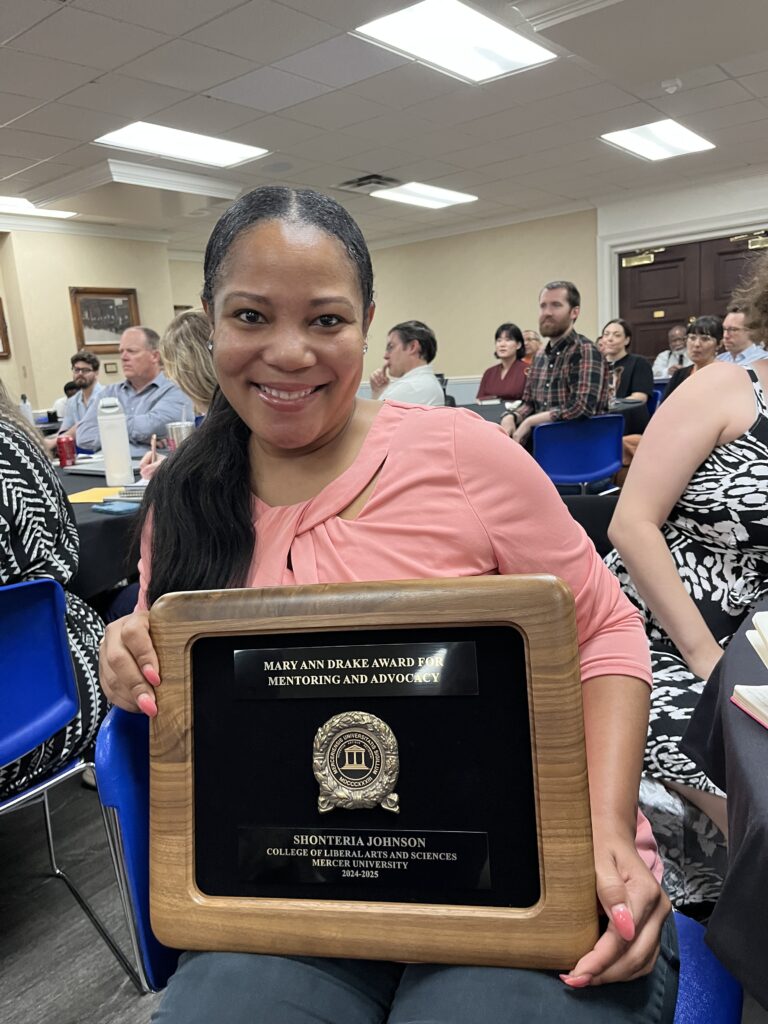
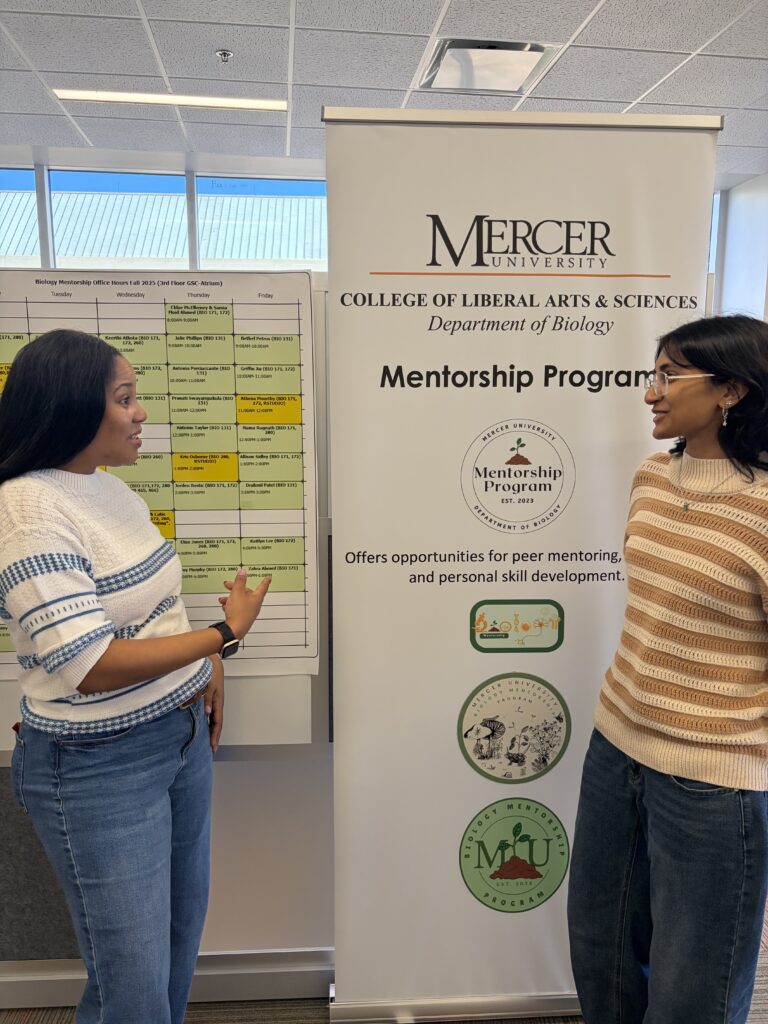
Vayalapalli’s experiences as a mentee led him to become a mentor this year. His mentor, Emma Teng, checked in on him regularly and helped him develop study plans and bounce back from a class he was struggling with. Now, he tries to offer the same level of support to his two mentees.
“(Emma) would sit with me all the time, whenever I needed anything. She was always there,” he said. “I think it’s good for the students to get mentorship, but I also think it’s good for the mentors. I’ve gained a lot, not only by mentoring other students, but the other mentors are there for me too. I learn a lot from mentoring.”
The Biology Mentorship Program also provides drop-in office hours where students can receive help from mentors in their biology, plant and animal physiology, genetics, and anatomy and physiology courses. Microbiology tutoring will be added in the future, Dr. Johnson said.
The program’s office is located in the third floor atrium of the Godsey Science Center, just down the hall from biology faculty offices. Office hours are generally 9 a.m. to 6 p.m. Monday through Friday, and students are encouraged to visit Mercer’s Academic Resource Center if they need assistance later in the evening.
“I’ve begun to see more connectedness within the students in the biology department,” Dr. Johnson said. “Just knowing that they can walk in there and they can ask for assistance without feeling the pressures of attending office hours, it alleviates some of that tension. I also encourage the student mentors to take the students to the professor’s office to show it’s a safe space.”
Shreya Sudakar, a senior biochemistry and molecular biology major, has been a mentor since her sophomore year. She joined to help other students adjust to the curriculum, share her knowledge, and pass on some of the things she wishes she’d known as an underclassman.
She said the program helps students with the entire college experience, not just their classes.
“I’ve loved all the mentees that I’ve been able to form connections with,” she said. “Helping take the load off of the unknown and the uncertainty of the biology classes helps them a lot. We want them to be confident in their ability to pass their biology classes.”
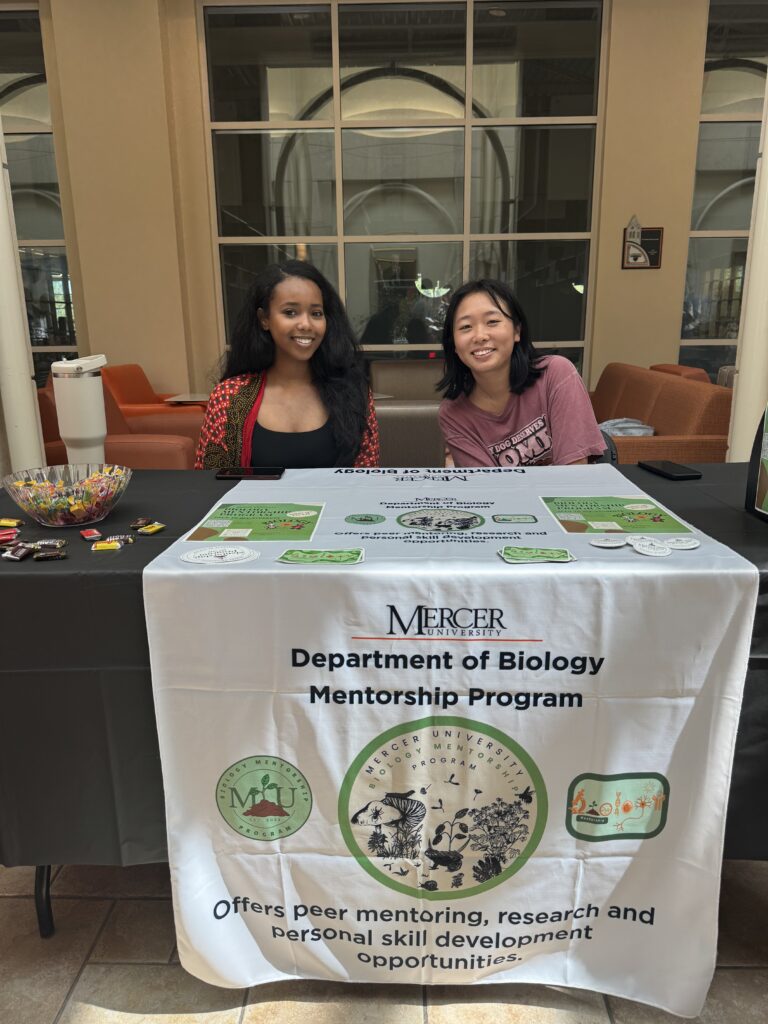
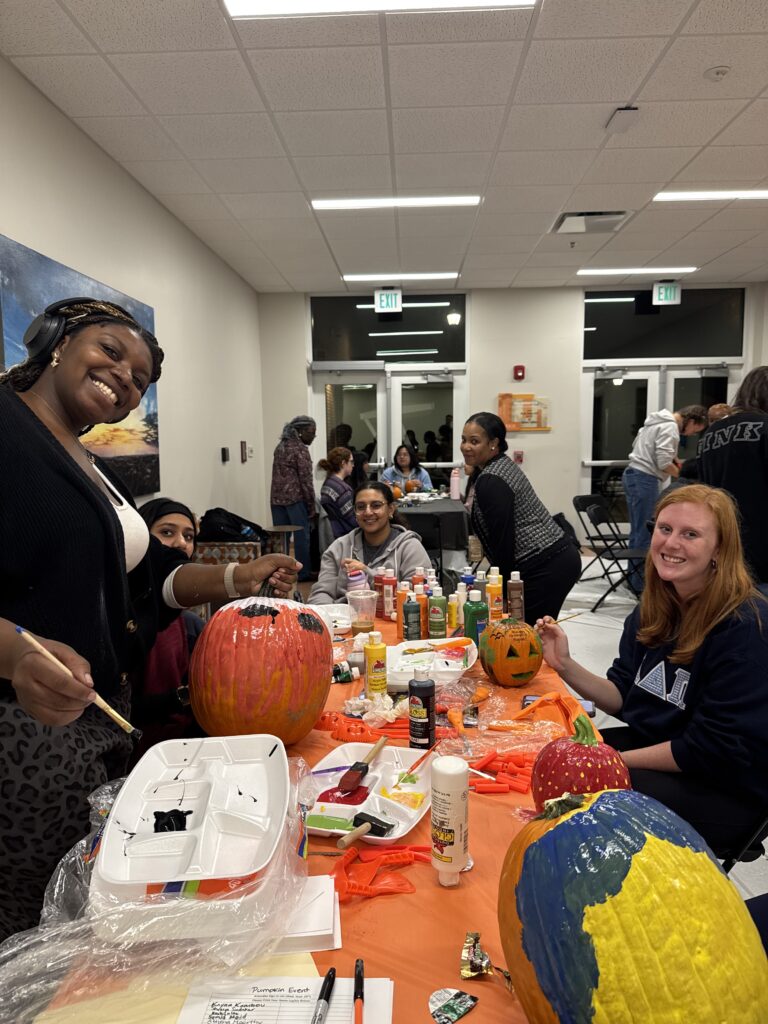
Mentors meet each week as a class and submit weekly Canvas assignments detailing their communication with their mentees, Dr. Johnson said. In addition, they put together a packet each year outlining available research opportunities with professors in biology, chemistry and medicine, and mentees can learn more about those options during Dr. Johnson’s annual Research Lab Tours event.
“We’re just trying to offer support for those students,” Dr. Johnson said. “I would not be where I am without student buy-in and support. The students love this program. The students are excited about this program. It’s really based on their commitment to the program.”
Dr. Johnson also hosts social networking events, such as a biology-themed pumpkin carving and painting party and pre-professional research panels. Mentors have visited with prospective students during Make It Mercer, and Dr. Johnson hopes to have the program represented at future admissions events.
Currently, two of Dr. Johnson’s BIO 195 students are digitizing qualitative and quantitative data on the Biology Mentorship Program and running statistical analysis so that research and findings can be presented in the future. Dr. Johnson is also organizing a board of directors on which students in the BIO 295 course will serve. They will take on leadership roles related to social media, programming, campus engagement, finances, creative design and communication.
Dr. Johnson said the Mary Ann Drake Award for Mentoring and Advocacy made her feel seen. She was honored to be acknowledged for her work with her students, but she was quick to point out that their dedication to the mentorship program has played a pivotal role in its success.
“I love teaching and my connection with students,” she said. “It’s so organic. Even when I’m lecturing, I make everything a conversation. I have a phrase, ‘Make it make sense.’ If what I’m saying doesn’t make sense, come talk to me and let’s figure it out.”
